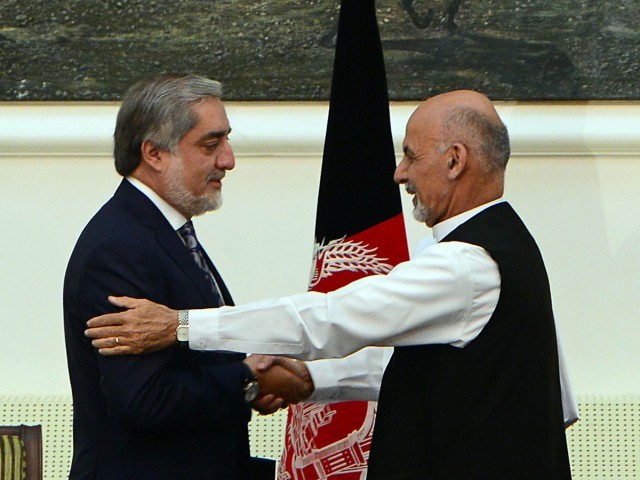The Ghani, Abdullah deal
by Rustam Shah Mohmand
President Ashraf Ghani has reached a compromise with his bête noir, Dr Abdullah, ending a long stalemate that threatened to cause chaos as the country confronts Covid-19 besides the ongoing insurgency. As per the agreement, Abdullah will head the National Reconciliation Commission and nominate half of the cabinet members. A key component of the deal is Abdul Rashid Dostum’s appointment as Chief of Armed Forces. Dostum’s selection as Marshal has caused considerable anxiety and concern within the country and beyond. The Uzbek warlord is widely believed to have been complicit in crimes against humanity.
The long stalemate that resulted from Abdullah not accepting last September election’s results has been broken. How will this play out as far as reconciliation is concerned?
The agreement is the outcome of expediency and a desire to promote partisan interests rather than advancing the cause of peace in the country. But it does offer a glimmer of hope in an otherwise gloomy environment.
Following the agreement, the Kabul government will now finalise its composition of the commission that will hold parleys with the Taliban. The only impediment to the start of dialogue is some tangible progress on the release of its prisoners. The US Special Envoy, Zalmay Khalilzad, would now be expected to urge Kabul to begin releasing more prisoners. Meanwhile, the Taliban have again called for a complete swap of prisoners as agreed to in the Doha Accord.
The intra-Afghan talks may get underway soon but the issues they face have no easy solution. The Taliban would insist on a few major demands, including the acceptance of their right to form a government, because ‘their legitimate government’ was removed by the 2001 US military intervention in violation of international law. This will not carry conviction with the government. Its negotiators would emphasise there is an elected government and parliament and the Taliban should accept their constitutionality and submit to the system i.e. get mainstreamed into the system. Obviously, this would be rejected by the Taliban.
Ghani as a beneficiary of the status quo would make all efforts to prolong the existing arrangement — with some concessions like the induction of Taliban ministers in the government. Abdullah would try to get closer to the US and seek some role in the future dispensation. Ghani and Abdullah would try to create conditions to promote their partisan interests, and the US role would be critical. If Washington is seeking an exit from the country, it has to exert real pressure on Ghani to not obstruct any agreement that could lead to a reconciliation. The most difficult question is: Will Ghani agree to allow a Taliban-led government to be inducted as a transitional arrangement to end the conflict? The whole peace process would hinge on whether Ghani would be pressured into such a scheme at the expense of his own position. The Kabul government and its armed forces rely on Washington’s continued financial support. The US can also solicit support from other factions, forcing Ghani to cede space as talks progress. Finally, the US can threaten to make an early exit if there is no headway. That would pave the way for a Taliban advance on Kabul.
Ghani realises he is on a weak wicket. His election victory rests on weak foundations. He was able to poll less than a million votes and even that was highly controversial. He might use his most potent trump card — his position as president. In the process of halting any peace initiative that does not guarantee his continuance in office, he would have caused irreversible damage to the prospects of peace and unity in Afghanistan. The Americans, having learnt the many mysteries of Afghan politics, would be aware of the tricks stakeholders would play as negotiations get underway. They would depart from the country with some consolation if they are able to see through the hollow constitutional edifice built with Washington’s overarching supervision and is now being used to obstruct peace in the war-ravaged country. The US has to play the hard ball.
Published in The Express Tribune, May 27th, 2020.